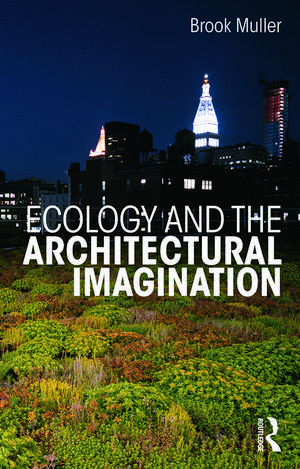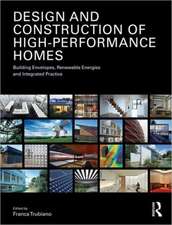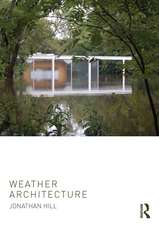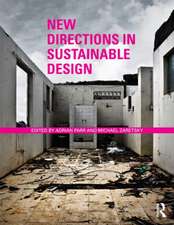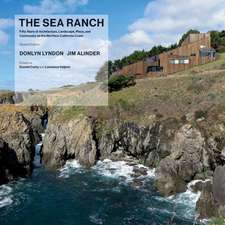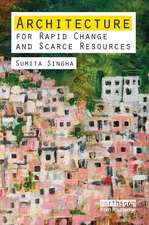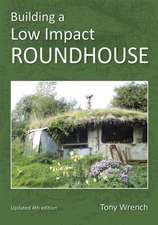Ecology and the Architectural Imagination
Autor Brook Mulleren Limba Engleză Paperback – 10 apr 2014
| Toate formatele și edițiile | Preț | Express |
|---|---|---|
| Paperback (1) | 461.57 lei 6-8 săpt. | |
| Taylor & Francis – 10 apr 2014 | 461.57 lei 6-8 săpt. | |
| Hardback (1) | 1274.53 lei 6-8 săpt. | |
| Taylor & Francis – 10 apr 2014 | 1274.53 lei 6-8 săpt. |
Preț: 461.57 lei
Nou
Puncte Express: 692
Preț estimativ în valută:
88.32€ • 92.40$ • 73.37£
88.32€ • 92.40$ • 73.37£
Carte tipărită la comandă
Livrare economică 03-17 aprilie
Preluare comenzi: 021 569.72.76
Specificații
ISBN-13: 9780415622752
ISBN-10: 0415622751
Pagini: 188
Ilustrații: 41 black & white illustrations
Dimensiuni: 138 x 216 x 13 mm
Greutate: 0.27 kg
Ediția:1
Editura: Taylor & Francis
Colecția Routledge
Locul publicării:Oxford, United Kingdom
ISBN-10: 0415622751
Pagini: 188
Ilustrații: 41 black & white illustrations
Dimensiuni: 138 x 216 x 13 mm
Greutate: 0.27 kg
Ediția:1
Editura: Taylor & Francis
Colecția Routledge
Locul publicării:Oxford, United Kingdom
Public țintă
Postgraduate and ProfessionalCuprins
Preface Introduction Part 1: Ecological Architectures Within a Broader Context 1. Intensification 2. Commons 3. Ecosystem Models Part 2: Conceptual (Eco)Architectural Constructs 4. Metaphor and Respatialization 5. Bodies 6. Furnishings 7. Landscapes and Machines Part 3: EcoArchitectural Strategies and Orders 8. Networks 9. Assembling Context 10. Continuity of Singularities 11. Watermark Epilogue: Narrating Architectural Futures Bibliography Index
Notă biografică
Brook Muller is Associate Dean of the School of Architecture and Allied Arts, Associate Professor of Architecture, Director of the Graduate Certificate Program in Ecological Design and core faculty member of the Environmental Studies Program at the University of Oregon, USA.
Recenzii
"Humanity’s entry into the Era of Cities necessitates an ecologically regenerative urbanism. Brook Muller is one of its greatest pioneers."
Robert F. Young, Assistant Professor at University of Texas
"This is the luminous re-imagining of architectural possibility that the reeling world deeply needs, a turn from an anthropocentric to an ecocentric ethos."
Kathleen Dean Moore, co-editor, Moral Ground: Ethical Action for a Planet in Peril
"A stimulating impulse directing architecture beyond green design to far a broader conversation with natural, political, metaphorical, and historical ecologies."
W. S. K. Cameron, PhD, Loyola Marymount University
"Recognizing that the very meaning of ecological and sustainable design is an open-ended imaginative experiment, Muller perceptively examines a number of metaphors for framing design concepts conducive to helping humans, non-humans, and ecosystems flourish together."
Mark Johnson, Philip H. Knight Professor of Liberal Arts and Sciences, University of Oregon and author of The Meaning of the Body, and Metaphors We Live By
"Brook Muller understands the relevance of a more sustainable built environment for our societies and a better way of living together. This book shows examples of good practice and explains why a more conscious built environment is relevant for the social contract."
Stefan Behnisch, partner, Behnisch Architekten
Robert F. Young, Assistant Professor at University of Texas
"This is the luminous re-imagining of architectural possibility that the reeling world deeply needs, a turn from an anthropocentric to an ecocentric ethos."
Kathleen Dean Moore, co-editor, Moral Ground: Ethical Action for a Planet in Peril
"A stimulating impulse directing architecture beyond green design to far a broader conversation with natural, political, metaphorical, and historical ecologies."
W. S. K. Cameron, PhD, Loyola Marymount University
"Recognizing that the very meaning of ecological and sustainable design is an open-ended imaginative experiment, Muller perceptively examines a number of metaphors for framing design concepts conducive to helping humans, non-humans, and ecosystems flourish together."
Mark Johnson, Philip H. Knight Professor of Liberal Arts and Sciences, University of Oregon and author of The Meaning of the Body, and Metaphors We Live By
"Brook Muller understands the relevance of a more sustainable built environment for our societies and a better way of living together. This book shows examples of good practice and explains why a more conscious built environment is relevant for the social contract."
Stefan Behnisch, partner, Behnisch Architekten
Descriere
Author Brook Muller understands that your design tendencies influence your working methods and impact the "greeness" of your buildings. This book explains design strategies and emphasizes the importance of your poetic judgment when you're dealing with complex and dynamic ecological systems. Muller also speculates architectural possibilities when ecology is embedded in the design process from conceptual phases onward, how these impact the architect’s role, and how ecosystems can inspire architectural space making and order.
